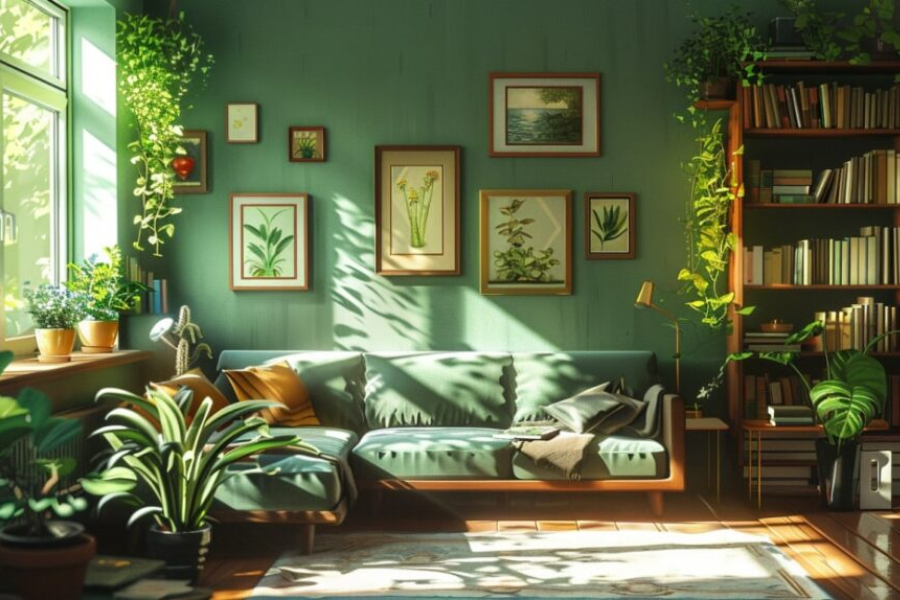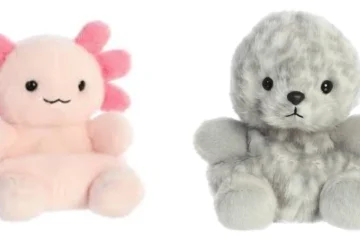Key Takeaways
- Adapting eco-friendly practices in your apartment can significantly reduce your environmental footprint.
- Small changes in energy consumption, water usage, and waste management can substantially impact the process.
- Creating a green living space can improve wellness and save money in the long run.
Introduction
Living sustainably doesn’t necessarily mean making drastic lifestyle changes. Simple, consistent actions can significantly reduce your environmental footprint. In spacious abode or cozy LA apartments, eco-friendly living is within reach. Here are some simple yet effective steps to make your apartment more sustainable and green. By integrating these practices, you’ll contribute to a healthier planet and enjoy various personal benefits, such as savings on utility bills and an improved living environment. Embracing a sustainable lifestyle can be fulfilling, bringing you closer to nature and fostering a sense of responsibility toward the environment.
Energy-Efficient Lighting
Switching to energy-efficient lighting is one of the easiest ways to start. Compact fluorescent lights (CFLs) or light-emitting diodes (LEDs) use less electricity than traditional incandescent bulbs. ENERGY STAR-certified LEDs consume 90% less energy and have a lifespan that is 25 times longer. This small change can reduce both your carbon footprint and electricity bills. Furthermore, LEDs come in various color temperatures, allowing you to establish the ideal atmosphere in every living space room quickly. For individuals worried about the initial expense, remember that the savings and positive environmental impact are much more valuable than the upfront. Furthermore, LEDs produce less heat than incandescent bulbs, leading to a cooler indoor space and decreasing the requirement for air conditioning during hotter periods.
Mindful Water Usage
Conserving water is also a vital component of sustainable living. Small changes such as reducing shower times, repairing leaks quickly, and installing water-efficient showerheads and faucets can significantly impact the process. By utilizing water-efficient fixtures, the typical household can decrease their water consumption by 20%, resulting in a yearly savings of around 13,000 gallons. Installing aerators on taps or choosing dual-flush toilets can further enhance water-saving efforts. Beyond the direct savings, reducing water usage also lessens the strain on local water supplies and treatment facilities, contributing to broader conservation efforts. Consider rain barrels for outdoor use, even in apartment settings with small balconies, to water plants sustainably.
Waste Reduction and Recycling
Managing waste effectively is crucial for reducing your environmental impact. Begin by decreasing the quantity of trash you produce. Use reusable shopping bags, avoid single-use plastics, and buy products with minimal packaging. Separate your recyclables correctly and ensure they are clean before placing them in the bin. Composting organic waste is another excellent way to reduce the amount of trash going to landfills. Creating a compact compost container for kitchen leftovers such as vegetable peels and coffee grounds can significantly decrease the waste produced.
Additionally, many communities offer composting programs that can collect organic waste if you need more space to do it yourself. Recycling programs vary by location, so it’s essential to understand the guidelines specific to your area to ensure you recycle correctly. Adopting a minimalist lifestyle, where you focus on acquiring only what you truly need, can also help minimize waste production.
Choose Sustainable Materials
Decorating your apartment with sustainable materials can have a significant impact. Select furniture made from reclaimed wood, bamboo, or materials that have been recycled. Look for textiles like organic cotton, hemp, or linen for your bedding and curtains. These materials are not only eco-friendly but also durable and stylish. They often use fewer resources and chemicals in their production, which means fewer pollutants and a healthier living environment. When shopping for new furniture, consider investing in items built to last, as this reduces the need for frequent replacements.
Additionally, repurposing or renovating old furniture can give your apartment a fresh look while being kind to the environment. Furniture made from materials like bamboo proliferates and can be harvested sustainably, making it a fantastic option for eco-conscious shoppers. Furthermore, purchasing local artisanal goods helps your community and decreases the environmental impact of transportation.
Adopt Green Cleaning Practices
Various conventional cleaning products contain chemicals that can harm the environment and your well-being. Using environmentally safe cleaners or creating your own with natural elements such as vinegar and baking soda can significantly impact. Brands that are transparent about their ingredients and have third-party certifications for eco-friendliness are good options. Moreover, making homemade cleaning solutions can be both cost-effective and straightforward. An example is an essential combination of vinegar and water that can handle different cleaning chores in the household. Adding essential oils can enhance the scent and boost the cleaning effectiveness. It’s also worth exploring reusable cleaning tools, like microfiber cloths, which can reduce waste compared to disposable products. Besides being environmentally friendly, these alternatives are often gentler on surfaces and can prolong the lifespan of your belongings. Educating oneself about the harmful effects of conventional cleaning agents can further motivate the switch to green cleaning practices.
Grow Indoor Plants
Plants improve air quality, reduce stress, and add a touch of nature to your living space. Plants like spider plants, peace lilies, and snake plants effectively clean the air by removing toxins. Caring for plants can be a fulfilling pastime that strengthens your bond with the natural world. Plants can function as natural humidifiers and have been proven to enhance your mood and efficiency. Low-maintenance options like succulents or pothos are great starting points for those new to plant care.
Additionally, you can grow herbs such as basil, mint, or cilantro, providing fresh ingredients for your meals while contributing to a greener home. Creating a small indoor garden can also be a fun project that involves the entire family, fostering a sense of responsibility and care for living things. Exploring various plant varieties and understanding their requirements can also provide a valuable learning opportunity.
Support Local and Sustainable Brands
Whenever possible, support local businesses and brands that prioritize sustainability. Whether it’s food, clothing, or household items, buying local reduces transportation emissions and often means you’re getting fresher, more eco-friendly products. Farmers’ markets, local co-ops, and small businesses are great starting places. You also invest in your community and its economy by supporting these enterprises. Look for certified organic, fair trade products, or other sustainability certifications to ensure you are making environmentally-friendly choices. Additionally, many local businesses are more transparent about their practices, allowing you to make informed decisions about the products you buy. Engaging with local artisans and producers can provide insights into the sustainable practices they follow and the challenges they face, fostering a deeper appreciation for environmentally responsible goods.
Conclusion
Transitioning to an eco-friendly lifestyle doesn’t happen overnight, but each small step builds towards a more sustainable future. Integrating these simple actions into your daily routine will reduce your environmental footprint and contribute to a healthier planet. Remember, even minor changes can lead to substantial improvements over time. Whether choosing energy-efficient lighting, conserving water, or supporting local, sustainable brands, your efforts collectively make a significant impact. Embrace these changes as part of a meaningful journey toward a more responsible and environmentally friendly way of living. Happy green living!
Keep an eye for more news & updates on TimesAnalysis.Com!



